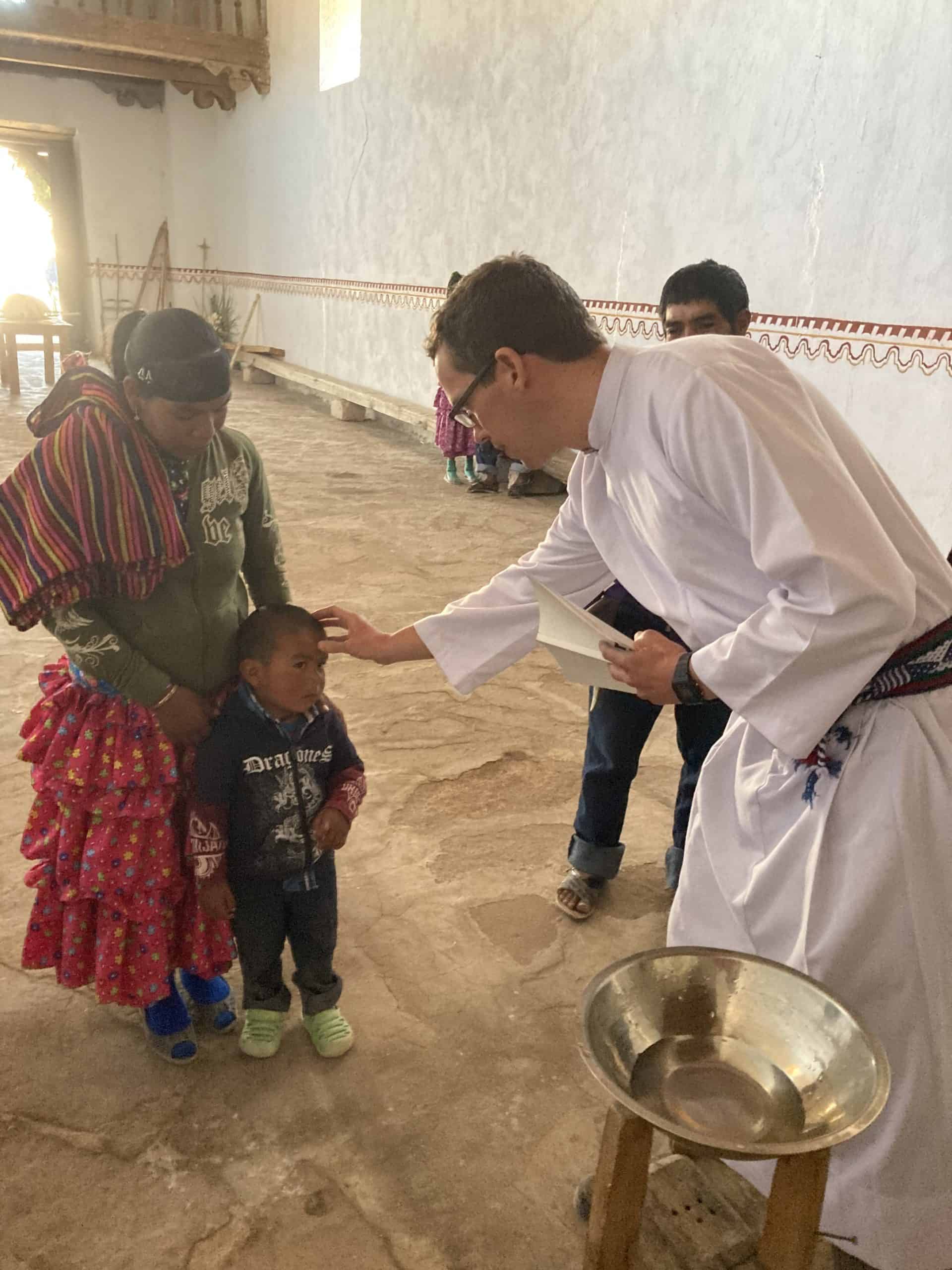“Firma aquí.”
“Sign here.”
I glanced over the document written in Spanish legalese. “Secuestro” (“kidnapping”) and “rescate” (“ransom”) jumped off the page. My eyes bulged and my pulse quickened. Only three days earlier I had professed my first vows in Los Angeles; now I was being asked to make yet another solemn profession: I would seek no ransom for my release in the event of my kidnapping.
Sensing my unease, Guillermo, my new superior in Guadalajara, told me “no te preocupes” (“don’t worry”) and flashed a toothy smile. He explained that the waiver was for my own protection: No ransom, no motivation for the narcos to target a gringo like me. As he said this, memories of equation-covered chalk boards and dispassionate explanations of unintended consequences filled my mind. It is one thing to grasp, on a theoretical level, how hostage payments shift kidnapping demand curves. It is quite another to willfully make yourself a datum in a social experiment. I closed my eyes for a moment, silently prayed the Suscipe, grabbed the pen, and signed the waiver.
That effort to cut the risk of a run-in with narcos was no mere formality. In my four year of Studies at ITESO, the Jesuit University of Guadalajara, there was a rash of violence in our poor neighborhood on the south edge of the city. A few months after I arrived, a popular teen Youtuber El pirata de Culiacán (The Pirate of Culiacán) was shot fifteen times at a taco stand a stone’s throw away from our humble living quarters. A few months later a dumped body was found in the dirt lot where our neighbors gathered to play pelota mixteca. Then bodies were found in an alley across the street. Soon, the violence was closer still: two mangled corpses appeared on the sidewalk outside our community’s door. Late night gunshots began to sound impossibly close. Would we soon be numbered among the nation’s nearly 100,000 missing people?
At the peak of the violence, Guadalajara’s authorities couldn’t keep up with the rate of recovered remains of desaparecidos (“disappeared persons”). Officials resorted to a grim “mobile morgue”—trailer trucks full of corpses driving around the city waiting for their turn to be autopsied and identified. One such semi-truck was found to contain 273 bodies. The truck’s refrigeration failed and a putrid stench alerted the neighbors to its contents before room could be found in the city’s overflowing mortuaries.
While the clergy were less likely to be targeted than the general public, our safety remained precarious. One day a Jesuit working for Buena Prensa —a Mexico City-based book publisher— didn’t return from work. Soon a ransom note surfaced. A hastily convened superior’s meeting was interrupted by a dreadful phone call: the priest’s lifeless body had been pulled from the gutter. Threats of violence are often directed towards Mexican Jesuits working on behalf of human rights at places like Centro de Derechos Humanos Miguel Augustin Pro (The Miguel Pro Human Rights Center) or in Mexico’s Sierra Tarahumara.
Sometimes the threats struck very close to home indeed. I served as our community treasurer for two years, and frequently traveled to the bank to make cash withdrawals. (Almost all our expenses —groceries, medical bills, auto repairs, maintenance— were paid in efectivo or cash, since debit and credit cards were viewed as contrary to our vow of poverty). My predecessor, a former systems engineer from Oaxaca, adamantly insisted that I take more frequent (and thereby smaller) withdrawals. He urged me to take irregular routes back from the bank to ensure nobody was following me. It wasn’t until the final months of my term that the reason for these precautions came to light: a few years earlier the community treasurer was found hogtied and penniless in our van after an ill-fated bank run.
~
My closest personal brush with disaster came in the summer of 2020. As the pandemic progressed, job losses and instability plunged many of our already poor neighbors into destitution. Poverty rates reached historic highs, and malnutrition became a real threat. Although our Jesuit community was already operating on a modest budget, we agreed to a sharp spending cut in order to buy and deliver groceries to our neighbors in need.
On one such grocery delivery, a Nicaraguan classmate and I drove the community van to a house that had reached out to us for food assistance. There had been some disconcerting helicopters flying over the neighbor’s street earlier in the morning, but we decided not to delay the trip. We parked on the jagged cobblestone road and began carrying the dispensa (groceries) from our van into the home of an elderly man and his physically disabled adult son.
Suddenly, the quiet afternoon was pierced by revving engines and squealing tires. National guard vehicles sealed off both sides of our street and a dozen soldiers carrying assault rifles charged towards us, chambering rounds and yelling commands. We would later learn that the dimly lit, cinder block residence across from us was a casa de seguridad (narco hideout) actively holding two kidnapped men.
As the soldiers swarmed the door of the hideout, the neighbors dove into houses and yelled for us to take cover. I ran as fast as I could, and nearly crashed into a young soldier crouched behind a parked car. Had I been morenito rather than güerito (of dark rather than fair complexion), deciding to charge through a military blockade to flee a crime scene might have been the last mistake I ever made. The national guard crashed through the door of the casa de seguridad, revealing the two missing men. But the narcos had vanished. Had the kidnappers been present, I very well could have been taken hostage or caught in a crossfire as the national guard closed in on their position.
The liberated men were bruised and beaten but would make a full recovery. They were lucky. Many others —whose images periodically appeared in frantic WhatsApp texts, whose mothers approached me after Lenten liturgies to bury their tear-soaked faces into my alb and plead for my prayers— are still missing today.
~
“Primero Dios. Si Dios quiere.” (“God willing”).
These are no vapid platitudes. These idioms underscore that, like it or not, our lives are radically out of our hands. Such nods to our inability to control the future — “There but for the grace of God go I”, “The Lord giveth and the Lord taketh away”, “The best laid plans of mice and men…” —have all but disappeared from the English lexicon.
That’s a shame. We are deluding ourselves if we believe we can bend fortune to our beck and call. Paradoxically, the more frantically we grasp after illusory levers of the great social machinery, the more we grow turned inwards and detached from that which truly endures. To trust in providence, by contrast, is to live in a freedom that welcomes each day as a gift. We would do well to recover the language and attitude of impermanence.
I knew none of that on that August afternoon in Guillermo’s office, my eyes darting across the no rescue agreement placed before me, the ceiling fan straining feebly against the noonday heat. With the stroke of a pen, my Jesuit classmates and I affirmed an important truth, a truth too often ignored north of the Rio Grande: We are not masters of our own destinies and no one is saved alone. Jesuits take precautions where possible, but refuse to cling greedily to individualistic security. Anything less would render us unworthy to be called compañeros de Cristo—companions of Christ.
-//-
Photo courtesy of the author.


